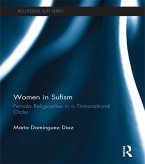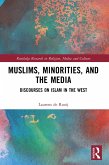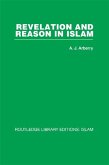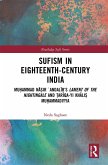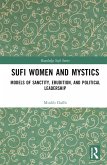The focus of this book ranges from reflecting Sufi themes in the Qur'anic calligraphy to movies, from ideals to everyday practices, from legends to actual history, from gender segregation to gender transgression, and from legalism to spiritualism. Consequently, the international panel of contributors to this volume are trained in a range of disciplines that include religious studies, history, comparative literature, anthropology, and ethnography. Covering Southeast Asia to West Africa as well as South Asia and the West, they address both historical and contemporary issues, shedding light on Sufism's adaptability.
This book sets aside conventional methods of understanding Islam, such as theological, juridical, and philosophical, in favour of analysing its cultural impact. As such, it will be of great interest to all scholars of Islamic Studies, the Sociology of Religion, Religion and Media, as well as Religious Studies and Area Studies more generally.
Dieser Download kann aus rechtlichen Gründen nur mit Rechnungsadresse in A, B, BG, CY, CZ, D, DK, EW, E, FIN, F, GR, HR, H, IRL, I, LT, L, LR, M, NL, PL, P, R, S, SLO, SK ausgeliefert werden.




